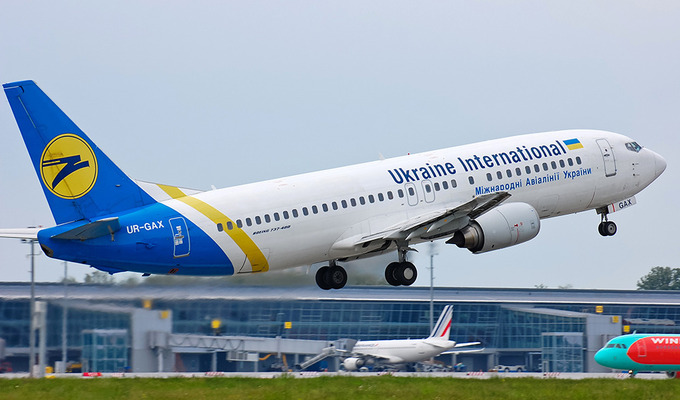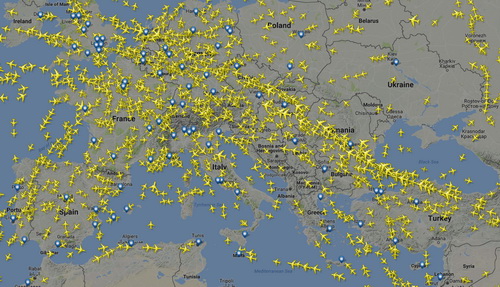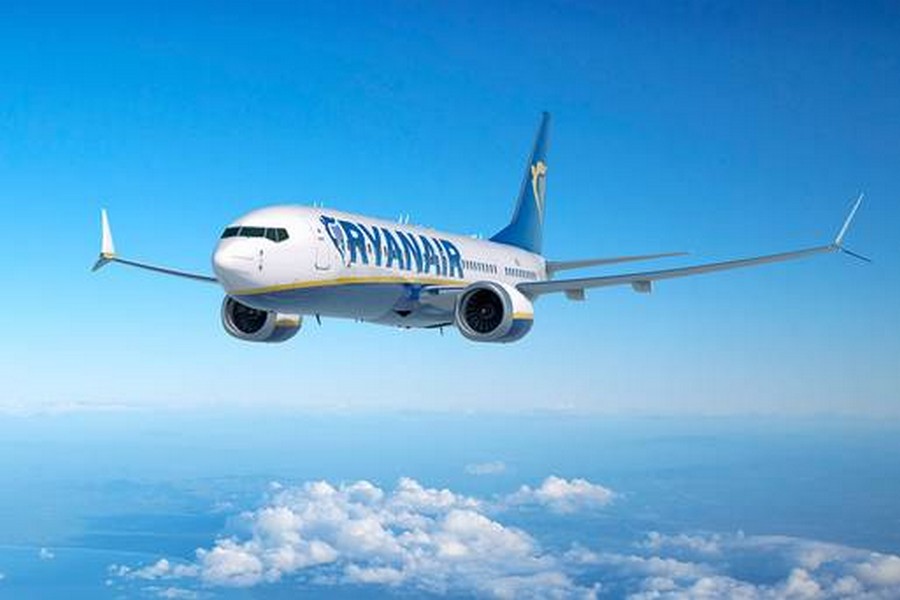Opposing the monopolist

Ukraine International Airlines, founded as a state company in 1992, was privatized in 2011. Now one of its final beneficiaries is oligarch Ihor Kolomoyskyi. He has interests in many areas, including oil and metallurgy. He also has assets in mass media. And he owned the largest commercial bank in Ukraine, PrivatBank, until the end of 2016. When his PrivatBank was nationalized, a shady deal between him and the government was suspected. Most of Ukrainian MPs are dependent on oligarchs, and Kolomoyskyi also had a group of his loyalists in the Parliament.
Current and potential players on the Ukrainian air travel market used to complain that Kolomoyskyi's UIA is the main obstacle for the development of the market.
Market players suspected hidden agreements between the state and the monopolist in the air transportation market too.
For example, in May 2016 Rodrig Merhezh, the owner of the airline Um Air in his interview with delo.ua told about another possible existing agreement, “I have no facts, but the rumor is at the market that there was a backstage bargain between the authorities and the Privat Group [Kolomoyskyi is one of its owners - OM] on the eve of the parliamentary vote for the appointment of Yuriy Lutsenko as the Prosecutor General. The control over the air market was the subject.”
Merhezh was the main opponent of Denys Antonyuk, the former head of the State Aviation Service who had been lobbying for the interests of UAI and initiated the rules for obtaining air routes profitable for the company.
In 2014, the low-cost airline Wizz Air stated that these new rules could have made the company to leave Ukrainian market at all due to the risk of its monopolization by UIA. Antonyuk was fired with a scandal.
In 2015, Wizz Air Ukraine ceased operations. The official reason was the unstable situation in eastern Ukraine and devaluation of Ukrainian currency. The company Wizz Air Ukraine was liquidated, its route grid was shortened, and Wizz Air Hungary started to handle its flights.
One of the reasons of the breakthrough which let Ryanair and other companies come to Ukraine was a decree on changes to the procedure of granting and annulling the rights for exploitation of airlines in Ukraine. It came into force in May 2016, eliminating the provisions which helped to monopolize the market, in particular - the requirement of Ukrainian nationality of the ultimate owner and the requirement to carry out domestic flights for a year to obtain the right for international flights.
However, UIA still can change the rules. As the above-mentioned decree came into force, the company appealed against the decision and the court abolished the provision forbidding to carry out flights of airlines which have debts before the special fund of aviation.
More conditions for breakthrough

The Minister of Infrastructure Volodymyr Omelian announced that Ryanair will enter the Ukrainian market in 2017 a year before it happened. He also said that many airlines would come to Ukraine if the agreement on the so-called Single European Sky between the EU and Ukraine would be ratified.
“Technically, this is a big problem, because even with the bilateral agreements with individual EU member states, airlines of the host country should be appointed,” said Omelyan.
The agreement on the European Common Aviation Area was initiated in November 2013 in Vilnius. It aims to create a single market in aviation services between the European countries.
However, the agreement has not been signed yet because of no consensus between Spain and the United Kingdom as for the applicability of the agreement to the usage of Gibraltar airport.
To move the situation forward, Ukraine started to implement the agreement unilaterally in March 2017. According to the Deputy Minister of Infrastructure on European integration Viktor Dovhan, Ukraine is gradually implementing all regulations to introduce the Single European Sky and prepares to open its aviation market.
“After that, we will send letters to the countries of the EU with a simple question: according to the agreement we open our aviation market – friends, are you with us? We understand that not all the EU countries will do it, however, it is a certain political method of creating pressure to solve the situation,” Dovhan said.
Hard entry to the market

On 15 March 2015, commercial director of Ryanair David O'Brien announced the airline's official plans in Ukraine. The company will carry out flights to the airports of Kyiv and Lviv. The launch of regular flights is planned for the beginning of the winter season in October-November 2017. The official website of Ryanair says that tickets for flights will be available at a price of EUR 19.9.
Read more: Wizz Air to launch four new flights to Ukraine
The destinations available from Kyiv will be Eindhoven (Netherlands) - 3 times a week, Manchester (England) - 3 times a week, London (Stansted, England) - 5 times a week, Stockholm (Sweden) - 4 times a week. The company expects to handle 250 thousand passengers in Kyiv annually.
From Lviv, Ryanair planes will depart in seven directions: Krakow and Wroclaw (Poland), Berlin and Memmingen (Germany), Budapest (Hungary), Eindhoven (the Netherlands) and London (England).
However, the market was not friendly to the newcomers. Ryanair was negotiating with the municipal airport Kyiv [formerly Zhulyany]. The agreement failed at the supreme moment. The representatives of the airport said that the agreement with Ryanair was commercially “disadvantageous” for them.
Read more: Ryanair comes to Ukraine with 9 flights from Kyiv and Lviv
Ryanair was suggested to use the main airport of the country Boryspil. However, after Ryanair's long-awaited presentation, the head of Boryspil stated that no agreement with the low-cost airline was signed.
Finally, the Ministry of Infrastructure reduced the airport's per passenger fee which amounted to $17. According to the unofficial information, Ryanair asked for $7.5.
The first document prepared by officials lowered the base rate of the passenger fee for international flights by 25%, from $17 to $13. Other discounts will make it possible to lower the tax to the EUR 7.5 Ryanair desires.
Boryspil airport, which chiefly collaborates with big classical airlines, might not benefit from such a decision. However, it definitely will work for customers.
According to the CEO of Boryspil Pavlo Riabykin, the negotiations with Ryanair are ongoing and the final deal is not signed yet.
The market changes
As Ryanair entered the market, UIA introduced its new tariffs with significantly lower prices cost-competitive with tariffs of low-cost airlines.
For example, if you order a ticket for a direct flight to Barcelona for April 2018, it will cost about EUR 34 one way. The minimum cost for a flight to Amsterdam is EUR 54. One way tickets from Kyiv to Milan, Venice, Paris or Rome will cost a bit more than EUR 100. And the prices for flights to Eastern European capitals can be even EUR 20.
Also, UIA introduced low-cost tariffs for domestic flights to the regions of Ukraine.
New routes are expected to be open as the visa-free regime with Europe introduced.
It is hard to predict whether the overall air passengers traffic will increase in Ukraine. Some experts doubt it due to the changes on the market of tourism concerning the popular destinations of Türkiye and Egypt.
Among other low-cost companies operating in Ukraine, there are AirBaltic, Vueling, Pegasus, Air Arabia, and Fly Dubai.
- Ryanair now services over 1,600 connections between 180 airports in 28 European countries and Marocco, with over 1,800 flights per day.
- On 15 March 2017 Ryanair announced its first Ukraine flights, Ukraine becomes the 34th country where the airline operates
- Ryanair plans to deliver 510,000 customers annually at Kyiv and Lviv Airports.
- Ukraine’s Minister of Infrastructure Volodymyr Omelyan said, “I am convinced that Ryanair will be another bridge that connects the infrastructure of Ukraine with Europe and it will be a good signal for the world's major investors.”
Read also: How Antonov’s world record-breaking cargo plane defined Ukraine

